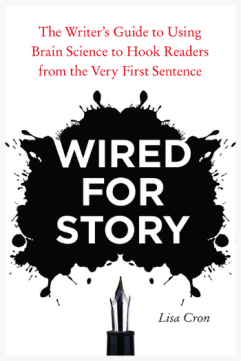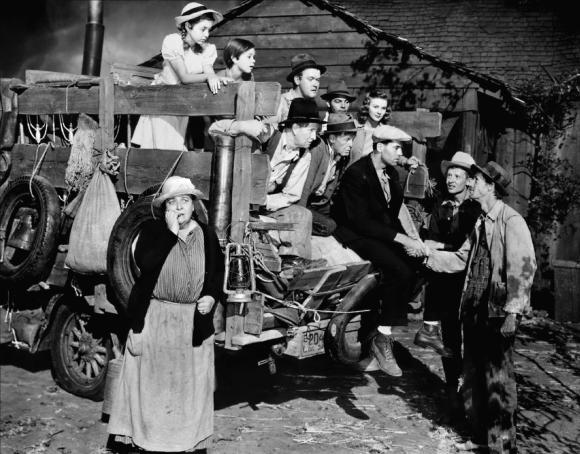In Chapter 1 of her book Wired for Story, author Lisa Cron discusses “How to Hook the Reader.” She analyzes the elements of story openings from the view of neuroscience, using what we know about the cognitive unconscious and its need to know in order to help writers understand how stories work.
 According to neuroscientists, the brain is overloaded with incoming data, and it sorts information, storing what is most important just below the level of consciousness where it is easy to access as needed by the conscious mind. Stories evolved to relay important information to help us survive.
According to neuroscientists, the brain is overloaded with incoming data, and it sorts information, storing what is most important just below the level of consciousness where it is easy to access as needed by the conscious mind. Stories evolved to relay important information to help us survive.
“We think in story,” Cron claims. “It’s hardwired in our brain. It’s how we make strategic sense of the otherwise overwhelming world around us.” As a result, Cron argues that we crave stories. We inhabit stories, living and learning vicariously from them.
In order for a story to be satisfying, a character must be placed in a challenging situation and confront a problem from the beginning pages: Will the boy win the heart of the girl? Will the hero be able to save the world? Will the woman get the career promotion she wants? The opening situation makes the reader wonder what will happen next, and this curiosity keeps the reader turning the pages and puts books on the bestseller lists.
While I agree with Cron about the importance of story problem in the opening, this chapter should come with a warning–Writers Beware. Don’t oversimplify this.
Too many beginning writers will carry this information to its extreme, placing characters in such overwhelming conflicts at the beginning that it becomes impossible to sustain the level of excitement for the reader.
 If the writer opens with his female detective attacked by a gunman while she is naked and showering at the gym, even if he successfully extricates her from the danger, it’s nearly impossible for the reader to follow into the next scene which shows the detective relaxing at home with her cat and a glass of wine.
If the writer opens with his female detective attacked by a gunman while she is naked and showering at the gym, even if he successfully extricates her from the danger, it’s nearly impossible for the reader to follow into the next scene which shows the detective relaxing at home with her cat and a glass of wine.
Author James Patterson might be able to get away with an opening scene in which the serial killer is contemplating how to murder the detective Alex Cross’s family, but Patterson is a master of sustaining the excitement.
If you’re not prepared to write a potboiler, you’ll want to begin with greater subtlety. Dostoyevsky begins Crime and Punishment with a hypochondriac avoiding his landlady because he can’t pay the rent. Carson McCullers begins The Member of the Wedding with a child’s loneliness and uncertainty.
 And John Steinbeck famously begins The Grapes of Wrath with a lengthy description of the weather.
And John Steinbeck famously begins The Grapes of Wrath with a lengthy description of the weather.
All of these writers tap into the emotional heart of their stories, engaging the readers’ imagination and empathy—topics that Cron addresses later in her book.